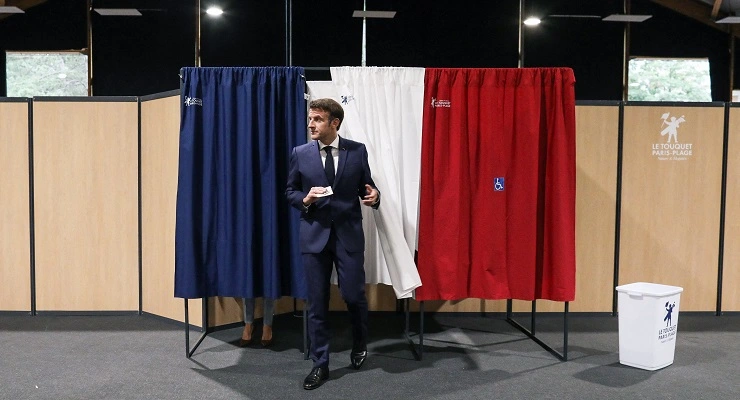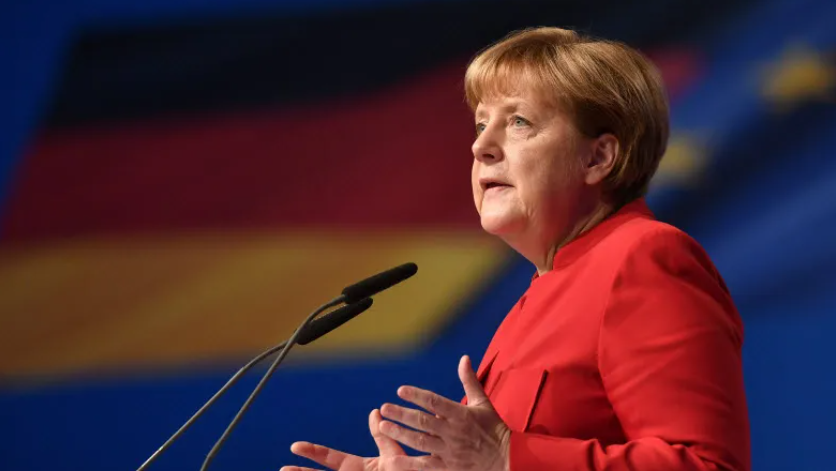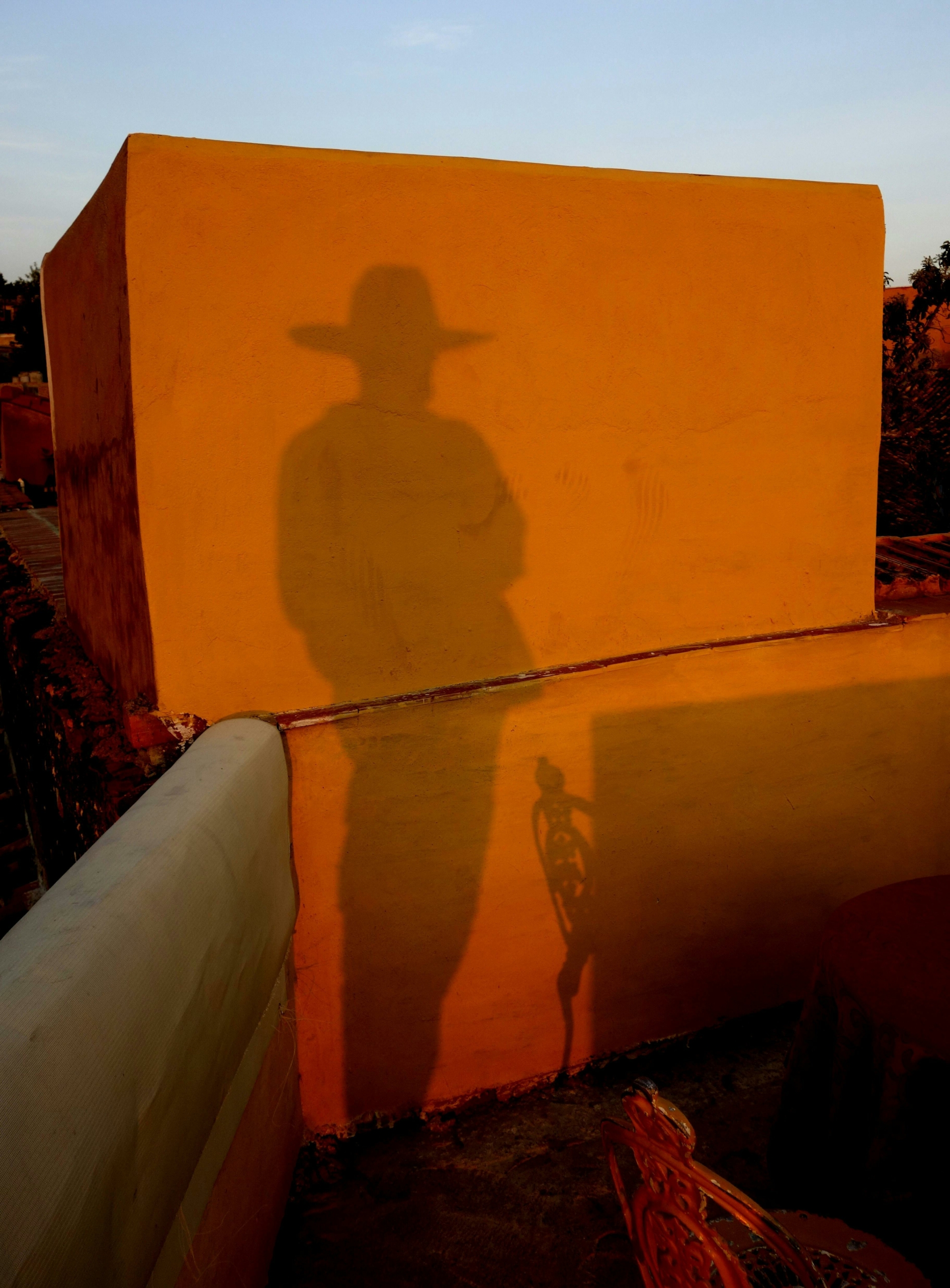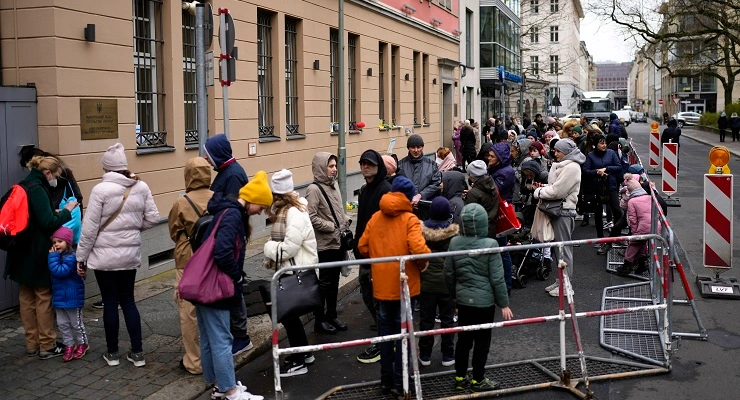Lessons from the French sub snub

One, we misread what the deal was all about…
… And two, a little bit of common courtesy, creative thinking and respectful, intelligent dialogue wouldn’t have gone astray.
When Albanese meets Macron, will they talk nukes — uranium sales, as well as submarines?

With Macron seeking to expand France’s nuclear energy industry, Australia has the potential to expand its supply of uranium to the nation.
Together apart: with no majority, Macron has to rethink his and France’s future

The metaphorical victory trumpets are sounding for almost all French political parties after the weekend legislative elections — except Emmanuel Macron’s depleted movement, Ensemble (Together), that is. It took a blasting from both the far right and left, to the point that it may now be hard to keep the presidential show on the road.
Macron was comfortably reelected president two months ago, but on Sunday he lost his absolute majority in such spectacular terms that he’ll have to rearrange and substantially recast his program for the next five years. But how and with whom?
That other election, the other debate: Macron leads but Le Pen a formidable force

On the cusp of the French presidential election, the far right has never been stronger in the land of ‘liberté, égalité, fraternité’.
How Putin’s invasion is shining a light on an ugly side of French politics

As the fallout from Putin’s invasion continues, French presidential candidates who have previously been sympathetic to him have been left frantically back-pedalling.
COVID puts federal-state relations to the test — and Germany is no exception

As the country fights a deadly second wave, what lessons can be learnt from the German government’s handling of COVID-19?
How Germany passed the first virus test

Germany has been a rare success story in Europe. The lesson? Resist populism, move fast — and spend big.
Crocodile Dundee in Munich: the sequel that never was

With Munich’s famous Oktoberfest coming to a climax this week, clam-handed castaway RICHARD OGIER has the city’s DIY denizens decidedly non-plussed.
A friend whose hair, I think it’s fair to say, is receding faster than mine, has sent me a link for an Australian TV commercial that promises the wonders of “German engineering, for your hair”. A car could be a shoebox on wheels but with German engineering will purr like a pussy cat — years of exposure to television advertising has taught us that. But German hair?
Something called “caffeine shampoo” that comes from an aerodynamic red-cap bottle purports to carry the secret of an eternal head covering for men. The original version, going by You Tube, is English, and shows a suddenly caffeine-energised red hair pushing along a white background, like a sunburnt worm spiralling through a snowstorm. Well, if the Brits are dopey enough to vote for Brexit (delisting 60% of exports and blaming foreigners for it), they’re silly enough to still be making ads with guys in white lab coats talking animatedly about a computer graphic. But I am susceptible. At 52, though my birthday was only recently, I have deplumed at the crown to the point of sporting what most of Sydney now calls, I’m told, a “mosquito launching pad”, which in my case qualifies as cute humour because you could stand a tray of drinks on it.
When I moved to Munich from Paris three years ago, the most important thing for me was to attend the Oktoberfest, 10 days of drinking cold beer with six million others direct from glasses big like milk tankards. Second was to get myself a top-line BMW.
Like degustation of the finest wine when in France, high in the expat male mind upon moving to Munich is that ‘Beemers’ are made here. “A beautiful car, but is it really better than its rivals, though certainly more expensive?” cautioned a French friend who has recently converted — from Peugeot to Renault. He said, “it’s merely a symbol of success” which naturally is why I want to see myself driving the streets of the Bavarian capital in one of these babies, the slightly receding but otherwise elegantly ageing virile type. Cruelly, my wife punctured my Luftballon by heartlessly pointing out that we can’t actually afford a “what, Series 5?” (self-parking 7, she meant), what with the Paris mortgage; rent in Munich; school fees; my Irish “sinking fund” and — oh alright! — the additional financial drain of my laboratory hair replacement program.
But Germany’s flair for engineering and building stuff has manifested itself in ways I didn’t expect. I shuddered at the news that a lift was to be installed in our building and that there might be, as Gert the elderly neighbour explained it, “some disruption”. Well, the works-in-progress were tidier than the kids’ room. The lift-builders, all dressed the same, put multi-sided metal bits in neat piles behind a little rope at end of the day. I came home one afternoon to find Gert (still with all his hair) standing po-faced among the workers. “We have struck water”, he told me. Over his shoulder, at the bottom of a seemingly interminable mine-shaft, I could see a guy thigh-deep in swishing water, a flash light on his helmet. I imagined hearing the slow yawing of bending metal for weeks afterwards, like the crashed plane parts floating in the sea when Tom Hanks goes down in Castaway but miraculously survives four years alone on an island chomping into raw fish and drinking coconut milk. But really, almost nichts (nothing — I’m taking lessons). The water problem was fixed; the lift just went in, all glass and light metal. I can tell you, the experience really marked me.
I can’t claim to be exactly handy but it never mattered before I moved to Munich after a long stint in Paris. Some of my best friends are jazz musicians, notoriously unhandy as a rule — one, I recall, as good as ruined a door trying to change a lock. My German landlord, a big Bavarian with a bouffant who speaks American english like a native (though loudly), put up a bedroom blind when we first moved in — this is true, Mr Trump — in about nine seconds, to the astonishment of my wife. (When I read her draft excerpts of this text she said, “that’s rubbish. It was 90 seconds”). Admirably on a later visit, he tried to hide his irritation, in psychology I think it’s called “rechannelling”, when after a long lesson I still could not “do the hoses” to re-fire the hot water system when rising pressure cuts it out. This he did by telling me he had greatly amused a group of dinner guests explaining that he had a new Australian tenant who was not handy. They had all seen the Crocodile Dundee movies, so assumed I could — I’m paraphrasing — open a can of white beans with a long knife. I could see in my mind’s eye his big frame bent double over the table, dinner guests laughing like hyenas at tales of the new Oz tenant useful around the house like a farting old dog.
Engineering, building and fixing stuff I’ve come to think, is linked to good civic behaviour — what the French refer to as civicisme, without always indulging it. In Munich they recycle à tout va, at the local swimming pool via a quite complex system of colour-coded bins (like the markedly less efficient red, green and yellow boxes of world trade negotiations). And how’s this for a statement of state-directed purpose? The Isar, the river that flows through the centre of the city — like the Yarra, Thames or Seine — was depolluted and cleaned up about ten years ago so that vast numbers of locals now swim along its white-stoned banks in Summer, hardly a broken beer bottle in sight. And this from a region with some 40 beers types, 627 breweries and more than 4000 beer brands. Perhaps it’s in these little ways, and not the grand gestures, that a city shows its true colours? A city that had the heart and soul but crucially also the organisational talent, to welcome 20,000 refugees in a weekend at the top of the European migrant crisis in September 2015.
At the news-agency across the street, I can leave a set of keys. The ground-floor hairdresser takes parcel deliveries for everybody in the building. Less appealing is that one is expected to do the same. Meaning that if you answer your inter-phone to the postman, Amazon or any other brand of brochure, brush or broom pedlar, he’s on the way up. No matter that his delivery, for which you must sign, is for neighbours unknown to you — or for young David across the hall, and his Iranian wife Sarah, who knocks at the door with saffron soup on special days, the significance of which she explains, but who otherwise we never see.
Other little boxes can be found at the mouth of the Metro. These are newspaper dispensers. You lift the plastic lid, put in the coins, and take a copy, feeling like a pleasantly upright Münicher. Once I was short 20 cents and felt wracked with guilt at helping myself, anyway. I returned to pay up later. It flashed through my mind relaying the fact of these things to my French mate, to stop by late at night in his new Renault and pick up a couple, for my font door or to position neatly in a corner of the living room, so that party guests might help themselves to a free paper when they visit.
Flushed by modern Munich’s sense of the collective, the good samaritan spirit, I took to turning in my chair when first here to talk to the locals in beer halls and cafes in basic German — oh hell, English. My entreaties would fall on deaf ears. There’s little or no eye contact in Munich, especially with the opposite sex. You can walk along a viaduct in Paris, see a beautiful woman in the street 20 metres below and she will, as if wearing ball-shoes, spin around in a second to spot you looking. I always feel embarrassed: the eternal guilt of the 1980s-reconstructed, feminist Anglo-Saxon male. Looking dishevelled. No German engineering in the hair.
Mark Twain wrote a famous essay about the confusion inherent in “the girl” being the neutral “das” Mädchen in German, but that’s nothing. Much harder is the second verb at the end of the sentence (“I wish I could do it”, becomes, “I wish that I it do could” — and which “could”?) Well, try that fast after a few litres of beer at the Oktoberfest. But Twain was right about the fiendishly hard road to mastering the four cases, which change word-endings. So “a problem” with the hot water system would be “das Problem”, but more than one would be “die Probleme”, while with (all) these problems “mit diesen Problemen”, you’d rather just be back at the office, or trying to put a bedroom blind up against the clock.
Will Macron’s fledgeling political movement break out and fly, or die in the egg?

Just as the fog was beginning to clear for France, with the election of positive-thinking reformist President Emmanuel Macron, old demons of the French political culture have again reared their ugly heads. And the consequences could be dramatic.
Two ministers have become enmeshed in ethics scandals that risk compromising weekend legislative elections for the government, rendering Macron’s revolution stillborn via the ballot box. Whatever his successes out-tweeting — out-smarting — Donald Trump and Vladimir Putin on the international stage, his first weeks have been sullied at home, and he will be blamed. But to what extent?
Should Macron decide to dismiss Richard Ferrand, his regional development minister and former campaign manager, and junior minister Marielle de Sarnez — both facing separate media allegations of sleaze — he would be charged with summoning a spectacular storm upon the government. If he doesn’t, and it appears at this stage that he will not, he could pay the price for ignoring one of the biggest lessons of the current electoral cycle: the French are tired of scandals and want exemplary behaviour from politicians.
The dilemma of France’s youth: vote fascist, vote technocrat or don’t vote at all?
As in cinema, France is home to auteur politics, where the central figure of the president is responsible for story, script and direction. Consider that he’s also perceived as the star of his own movie, and one begins to see the power and responsibility of the president as “republican monarch” in the French political system.
The French presidency is about great politics, in the Platonic sense of would-be great men facing a series of make-or-break tests in a febrile kingly court atmosphere (France has never had a female president). Seen in the these terms, Macron is the latest in a long line of great and flawed presidents, from the Olympian war leader and statesman Charles de Gaulle to the Florentine intellectual Francois Mitterrand, but also including the pre-revolutionary kings of France (on election night, Macron emerged walking sombre and solitary among the classical statues of the Louvre).
With parliamentary elections in two rounds on June 11 and 18, Macron’s next major test, as it were, is in casting. The centrist broke the back of the French party system of left and right in May presidential elections; named as promised a cabinet drawn substantially from civil society with members from both sides of politics; and reinvigorated the French trope of the “Jupiterian” president — referring to Jupiter king of the gods in Ancient Rome, though equally, if unintentionally perhaps, the distant orbiting planet that, floating above the melee, doesn’t actually touch the Earth of everyday problems. In France, the fuss and muss of ordinary, as against great politics, is the job of the hapless prime minister, also appointed by the president.
France has been in a rare, glass-half-full kind of mood lately. Macron’s win felt like relief then a rampart against rising populism in the West, with Trump pushing the US to the verge of institutional crisis and a Brexiting Britain stuck in electoral mode (Manchester and London traumatised by terrorism; the city under pressure; the currency down 15%, hurting wages and savings).
Rundle: on the troubled streets of a France that’s burning
Confidence in Macron as President is up some 10 percentage points since the poll, raising the possibility that his fledgling Republique En Marche (REM) could now win an outright parliamentary majority — meaning 289 of the 577 House of Assembly seats (one poll according REM even 320-350 seats). Alternatively, he could win enough seats to govern with the left of the right and the right of the left. Herein’s the rub, in fact, because a hostile Parliament would curtail Macron’s capacity to counter nationalism, structure European reform with German Chancellor Angela Merkel, and implement the kind of liberalising economic reform France so desperately needs.
Enter the ethics controversies, with Ferrand facing “preliminary judicial investigation” for allegedly helping his romantic partner in a 2011 real estate deal with a mutual insurer he managed. He also stands accused of employing his son as a parliamentary assistant and failing to declare it. Sarnez’s name appears on a list of 19 members of the European Parliament subject to a preliminary investigation for allegedly employing party operatives as parliamentary aides.
The affairs are prosaic and complex but starkly echo the presidential campaign, when accusations of enriching family members sank mainstream right candidate, Francois Fillon. Macron has made a law to “moralise politics” his first major legislative test, with surveys constantly showing that honesty is the most sought-after quality in politicians for the French.
The current controversies have put a grain of sand in the REM machine. If this proves to the point of putting a major brake on Macron in the Parliament, his great revolution risks dying in the egg. Again the French glass would look distinctly half-empty.
France is not out of the woods yet, and these parliamentary elections will be a watershed.

